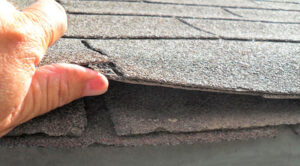While roofing inspections are important, it’s important to understand how they work before you hire one. Some services are free, but the reality is that they are often less than thorough and will mislead you. Another important issue is the value of such a report – you can’t trust your insurance company! Read on to learn more about roofing inspections and how to avoid getting ripped off. This article will give you the scoop on what you should look for in an inspector.

Roofing inspectors begin by performing a walk-around exterior of the home. They will look for signs of water intrusion or missing materials. They will also look for aging in the attic or on the roof itself. They will also check the structural supports of the roof to make sure they aren’t failing. They will also look for mold, water stains, and wood rot, which are all common signs of roof problems. Finally, they will examine the roof itself and its surrounding areas.
Roofing inspections can be difficult to complete and often miss several important things. It’s important to understand the local building department’s guidelines for roof inspections and schedule an appointment accordingly. If you are hiring a roofing contractor, scheduling an inspection as early as possible will ensure your project runs smoothly. A roof typically needs two inspections to be considered complete, so it’s a good idea to plan ahead. A pre-inspection is usually performed on buildings that have a 3/12 or lower pitch.
Roofing inspections can be tricky because important roof components are hidden under layers of shingles and other materials. The best inspections can reveal what’s happening underneath the shingles, such as the underlayment. After performing the inspection, the inspector will issue a report detailing the results. The certification is valid for two to five years after the inspection and is issued after the necessary repairs have been made.
During the roof inspection, the inspector will also check the condition of the roof. This is especially important if it is the first inspection of your home. Several factors contribute to a leaking roof, including improper installation of the seams. A leaking roof is a sign that there’s a problem somewhere. Whether it’s a missing seam, cracked shingles, or deteriorated chimney cap, a good inspection will uncover issues and prevent costly repairs in the future.
While it’s recommended to hire a roofing inspector at least twice a year, most roofing professionals suggest that you have a professional inspect your roof at least once a year. This will prevent problems from occurring and allow you to address them before they get worse. Besides, preventing problems early is always better than making costly repairs later on. A professional roof inspection is also vital for the safety of your home. If you’re not comfortable with heights, it is important to learn about the signs to look for.
Drones are another way to perform a roof inspection. Drones are particularly useful for inspections in difficult-to-reach places, and they can give an unprecedented vantage point. While drones are a popular way of inspecting roofs, there are certain benefits and drawbacks to each method. If you opt for a more comprehensive inspection, expect to pay more. Despite the increased expense, it’s important to remember that a qualified roofing professional can give you a reliable assessment.
Research the reputation of the company and read testimonials from previous customers before you make a decision on a roofing contractor. You can find out if a company provides excellent customer service, high-quality workmanship, and affordable pricing from past customers. You can also find their testimonials and reviews on the Internet. Ask for references if possible. Then, after you have reviewed their portfolios you can reach out to them and make a decision on the basis of their reviews.
Communicate openly with the roofer when you hire them. Communication with the contractor is key to the success of the project. Ask questions and clarify your concerns if a roofer isn’t clear on what you are looking for. The roofer will then explain how to replace your roof. Discuss the costs of materials and your options for repair. A roofer can do quality work and save you from unpleasant surprises later.